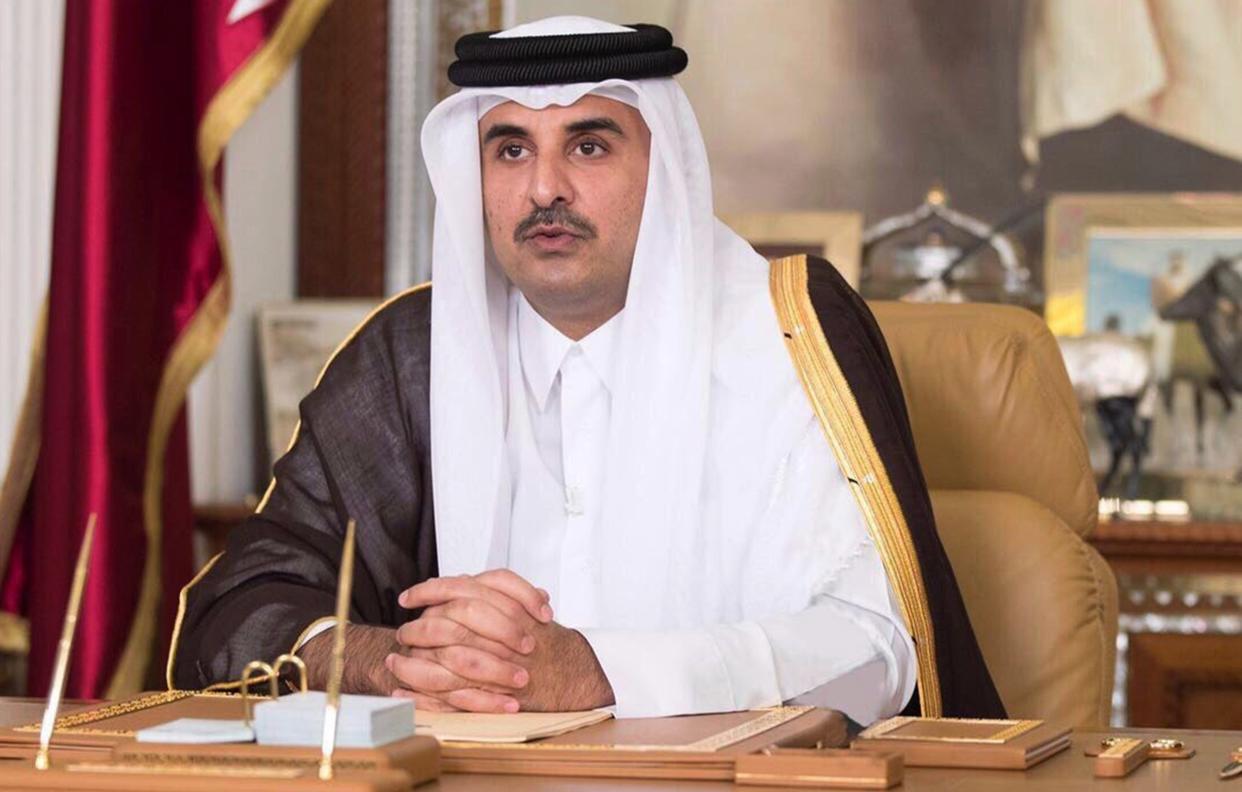How Qatar being forced to stop funding terrorism led to Hamas and Fatah reconciling

Hamas’ announcement last week that it would be willing to hold talks with the rival Fatah was unexpected but not surprising. For weeks now, Palestinian political commentators have judged that Hamas’ position in Gaza would become increasingly precarious as Qatar, the group’s principal benefactor, began to feel the political and economic pressures of the Anti-Terror Quartet’s sanctions.
The rapprochement is certainly welcome – an end to the violent, decade-long feud between both Palestinian parties may well bring fresh impetus to the conflict resolution efforts with Israel. Yet the timing is significant: the cessation of Qatar’s financial and military aid to Hamas comes at a moment when Islamist extremist rebels in the region appear to be in retreat.
Hardline Islamist militias are collapsing in Syria and only last month the Iraqi army reclaimed Tal Afar, the former Isis stronghold, having defeated Isis forces in Mosul in July. It is no coincidence that these gains have increased as the longer sanctions against Qatar have continued. This is perhaps the first major policy success of the boycott: it has forced Qatar to rein in its pragmatic support for extremist groups as the world’s spotlight is fixed on Doha.
The political implications of the Hamas-Fatah rapprochement extend beyond Gaza. For years, Egypt has sought to improve relations between both parties following the split in summer 2007. Yet efforts at reconciliation foundered repeatedly on the rock of Hamas’ intransigence and were intensified further by orders from Doha.
In this respect, Egypt’s role in progressing the rapprochement through brokering talks between Hamas and Mohammed Dahlan, the exiled former Fatah leader currently residing in the UAE, is instructive.
Hamas’ close ties with the Muslim Brotherhood, a Qatari-funded extremist organisation, has long been a cause for concern in Egypt where the Sisi government has conducted tough crackdowns on the organisation since coming to power in 2014. The recent decline in Qatar’s regional influence is likely to curtail the Muslim Brotherhood’s operations significantly, leaving Egypt free to play a more active role in the peace process between Israel and Palestine.
Elsewhere, Hamas has sought to strengthen regional ties as other Arab countries have overwhelmingly lent their support to Egypt-led efforts by the Quartet to broker peace between Gaza and Israel. None of Hamas’ former allies, including the Muslim Brotherhood and Qatar, have a vested interest in seeing the conclusion of a successful peace process between Hamas and Fatah, let alone with Israel – given their staunch opposition to the Quartet’s regional influence.
Nonetheless, the GCC’s sanctions on Qatar severely weakened Hamas’ strongest supporters and put the group under significant pressure in Gaza. Faced with growing unpopularity due to Fatah’s cuts to Gaza’s electricity supply in a climate of Fatah-imposed salary cuts on Gaza government employees and high levels of unemployment, Hamas had little choice but to reconcile with Fatah.
Yet the reconciliation may well be a precursor of things to come. Qatar’s regional proxies are coming under increasing pressure as the country itself can no longer afford to fund their operations.
Under these circumstances, the question remains: what will Qatar do next? If it has no intention of taking steps to reverse its diplomatic isolation, it may decide to re-engage with these extremist groups the moment the spotlight moves elsewhere. That would be a dangerous outcome that must be avoided at all costs.

 Yahoo News
Yahoo News 
